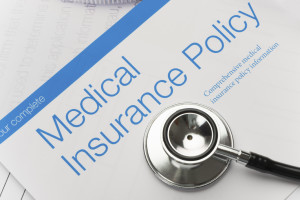
If you’re hunting for health insurance, open season is about to end.
Thinking about doing without? You’ll have a target on your back, and could be gored with fines pushing $1,000, depending on your income and family size.
If you’re firing blanks when it comes to insurance know-how, the experts in Spectrum Health’s Financial Counseling offices can help point you in the right direction and target a health plan that is right for your individual or family needs.
What kind of plan should you buy? Are you eligible for a subsidy? Is your doctor in the network? What kind of penalty will you be socked with if you don’t have health insurance?
Spectrum Health’s 50 financial counselors are all certified application counselors for the Affordable Care Act (healthcare.gov) and can help you answer these questions and more. They’ll help you navigate the healthcare.gov web site and even help you fill out an application to determine if you’re eligible for a subsidy.
And the best part is? It’s all free. You don’t even have to be a Spectrum patient, past or present, to participate.
Open enrollment on the Health Care Marketplace kicked off Nov. 1 and ends Jan. 31.
“We are here as a guide,” said Rhonda Hedlund, Spectrum Health northern region supervisor for financial counselors.
Hedlund estimates about 80 percent of the people who come in for a consultation are eligible for a subsidy, which helps pay part or all of the monthly premium.
“Don’t be afraid to check it out,” she said. “This is an opportunity to ask questions and walk away and make an educated decision. There’s no pressure. We are just out to educate.”
Hedlund cautions that you may want to do some research before simply re-enrolling.
“Come and see us, even if you’re renewing,” she said. “Is it still the best plan for you or are there other ones out there?”
The metal-tiered plans—bronze, silver, gold and platinum—represent different premiums and deductibles. Typically the lower the premium, the more you’ll pay out-of-pocket for medical expenses.
Not sure which tier is best for you? Hedlund and her fellow counselors are there to help with that, too.
“A few simple questions and answers can help us guide you to what your best choices are,” she said. “While we can’t make decisions for you, we are certainly here to help guide you.”
Here are some key points to remember:
- If you don’t have health insurance, your wallet will get gored. Hedlund advises checking with a tax preparer for exact amounts, but as a guideline, if you don’t have coverage in 2015, you’ll pay 2 percent of your yearly household income or $325 per adult and $162.50 per child, whichever is higher. Maximum penalty is $975.
- You can only obtain a subsidy if you purchase insurance through the Health Care Marketplace. If you buy coverage elsewhere, you will not be eligible for a financial assist from the government.
- You must file a tax return to get a subsidy.
- You will not be penalized or pay a higher premium for pre-existing conditions if you purchase through the Health Care Marketplace. If you purchase insurance elsewhere, your health history could jack your rates.
 /a>
/a>
 /a>
/a>
 /a>
/a>